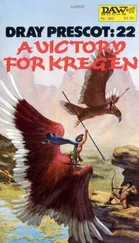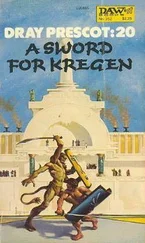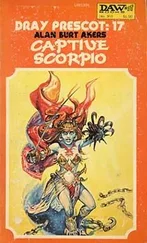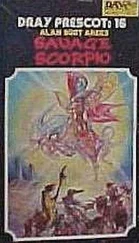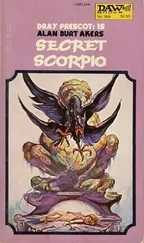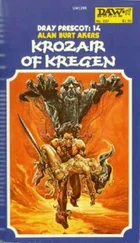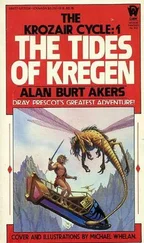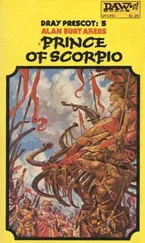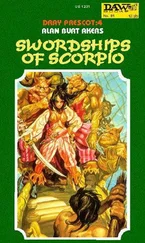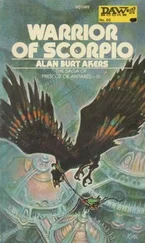Alan Akers - The suns of Scorpio
Здесь есть возможность читать онлайн «Alan Akers - The suns of Scorpio» весь текст электронной книги совершенно бесплатно (целиком полную версию без сокращений). В некоторых случаях можно слушать аудио, скачать через торрент в формате fb2 и присутствует краткое содержание. Жанр: Героическая фантастика, на английском языке. Описание произведения, (предисловие) а так же отзывы посетителей доступны на портале библиотеки ЛибКат.
- Название:The suns of Scorpio
- Автор:
- Жанр:
- Год:неизвестен
- ISBN:нет данных
- Рейтинг книги:5 / 5. Голосов: 1
-
Избранное:Добавить в избранное
- Отзывы:
-
Ваша оценка:
- 100
- 1
- 2
- 3
- 4
- 5
The suns of Scorpio: краткое содержание, описание и аннотация
Предлагаем к чтению аннотацию, описание, краткое содержание или предисловие (зависит от того, что написал сам автор книги «The suns of Scorpio»). Если вы не нашли необходимую информацию о книге — напишите в комментариях, мы постараемся отыскать её.
The suns of Scorpio — читать онлайн бесплатно полную книгу (весь текст) целиком
Ниже представлен текст книги, разбитый по страницам. Система сохранения места последней прочитанной страницы, позволяет с удобством читать онлайн бесплатно книгу «The suns of Scorpio», без необходимости каждый раз заново искать на чём Вы остановились. Поставьте закладку, и сможете в любой момент перейти на страницу, на которой закончили чтение.
Интервал:
Закладка:
On the third day I was rewarded by finding myself among cultivated rows of sah-lah bushes, their blossom incredibly sweet, bright like the missal I had seen by the Grand Canal. This particular season was burgeoning with the promise of a rich, ripe harvest and every chance of a successful second crop. I watched carefully, for I had enough experience of savage Kregen now not to rush in headlong without a surveillance; alas, a stricture I was continually forgetting in the stress of one emergency after another. Here, however, there seemed to be no emergency; in fact I would then have hazarded a guess that stress and danger were unknown. I would have been wrong; but not for the reasons I advanced to myself as I crouched in the bushes and stared out on the orderly rows of huts, the busy men and women in the fields, the sense of discipline and order everywhere.
When I had satisfied myself that this must be some kind of farm on a colossal scale, with all the usual muddle and filth inseparable from farm life removed in some magical way, I decided I had best wash myself before making an appearance. I found a stream and stripped off and thus, all naked and streaming water, I saw the mailed man ride into sight over the bank. I was to be caught more than once swimming, naked, to mutual misunderstandings, for men shed more than clothes when they strip. On this occasion I was given no chance at explanations, no chance to talk, no chance to prove myself a stranger here, not one of their people.
A man clad in steel mesh leaned from his mount and swung his sword down toward my head. I ducked and turned, but the water stinging my eyes had betrayed my accuracy of vision, the water around my waist hampered me, and the blade caught me flatly across the back of the skull. I have a thick skull, I think, and it has taken enough knocks to prove it tough and durable and obstinate, too, I admit. All my poor old head bone could do on this occasion was to save my life. I could not stop the sudden black swoop of darkness and unconsciousness.
CHAPTER FOUR
“I have persuaded Holly,” said Genal, looking up with a squint from where he slapped and shaped a mud brick, “to bring us an extra portion of cheese when the suns are overhead.”
“You’ll ask that poor girl to do too much one day, Genal,” I told him with a severity that was only half a mockery. “Then the guards will find out, and-”
“She is clever, is Holly,” said Genal, slapping his brick with a hard and competent hand. The sounds of bricks being slapped and patted and the splash of water, the hard breathing of hundreds of work people making bricks, floated up into the stifling air.
“Too clever — and too beautiful — for the likes of you, Genal, you hollow-bricker, you.”
He laughed.
Oh, yes. The work people here in the city of Magdag could laugh. We were not slaves; not, that is, in the meaning of that foul word. We worked for wages that were paid in kind. We were supplied from the massive produce farms kept up by the overlords, the mailed men of Magdag. Of course we were whipped to keep up our production quota of bricks. We would not receive our food if we fell behind in output. But the workers were allowed to leave their miserable little hovels, crowded against the sides of the magnificent buildings they were erecting, to travel the short distance to their more permanent homes in the warrens for weekends.
I made a scratch with my wooden stylus on the soft clay tablet I held in its wooden bracket.
“You had best move at a more rapid rate, Genal,” I told him.
He seized another mass of the brick mud and began to slap and bang at it with the wooden spatula, sprinkling it with water as he did so. The earthenware jar was almost empty and he cried out in exasperation.
“Water! Water, you useless cramph! Water for bricks!”
A young lad came running with a water skin with which to replenish the jar. I took the opportunity to have a long swig. The suns were hot, close together, shining down in glory. All about me stretched the city of Magdag.
I have seen the Pyramids; I have seen Angkor; I have seen Chichen Itza, or what is left of it; I have seen Versailles and, more particularly, I have seen the fabled city of Zenicce. None can rival in sheer size and bulk the massive complexes of Magdag. Mile after mile the enormous blocks of architecture stretched. They rose from the plain in a kind of insensate hunger for growth. Countless thousands of men, women, and children worked on them. Always, in Magdag, there was building.
As for the styles of that architecture, it had changed over the generations and the centuries, so that forever a new shape, a fresh skyline, would lift and reveal a new facet in this craze for megalithic building obsessing the overlords of Magdag.
At that time I was a plain sailor lightly touched by my experiences on Kregen, still unaware of what being the Lord of Strombor would truly mean. For years my home had been the pitching, rolling, noisy timbers of ships, both on the lower deck and in the wardroom. To me, building in brick and stone meant permanence. Yet these overlords continued to build. They continued to erect enormous structures which glowered across the plain and frowned down over the inner sea and the many harbors they had constructed as part and parcel of their craze. What of the permanence of these colossal erections? They were mostly empty. Dust and spiders inhabited them, along with the darkness and the gorgeous decorations, the countless images, the shrines, the naves, and chancels. The overlords of Magdag frenziedly built their gigantic monuments and mercilessly drove on their work people and their slaves; the end results were simply more enormous empty buildings, devoted to dark ends I could not fathom then.
Genal, whose dark and animated face showed only half the concentration of a quick and agile mind needful in the never-ending task of making bricks, cast a look upward.
“It is almost noon. Where is Holly? I’m hungry.”
Many other brick makers were standing up, some knuckling their backs; the sounds of slapping and shaping dwindled on the hot air.
An Och guard hawked and spat.
Now women were bringing the midday food for their men.
The food was prepared at the little cabins and shacks erected in the shadows of the great walls and mighty upflung edifices. They clung like limpets to rocks. The women walked gracefully among the piles of building materials, the bricks, the ladders, the masonry, the long lengths of lumber.
“You are fortunate, Stylor, to be stylor to our gang,” said Genal as Holly approached. I nodded.
“I agree. None cook as well as Holly.”
She shot me a quick and suspicious look, this young girl whose task was to cook and clean for a brick-making gang, and then to take her turn with the wooden spatula of sturm-wood. The sight of my ugly face, I suppose, gave her pause. Because I had been discovered to possess the relatively rare art of reading and writing — all a gift of that pill of genetically-coded language instruction given to me so long ago by Maspero, my tutor in the fabulous city of Aphrasoe — I had automatically been enrolled as a stylor, one who kept accounts of bricks made, of work done, of quotas filled. Stylors stood everywhere among the buildings, as they stood at seed time and harvest in the Magdag-owned field farms, keeping accounts.
For that simple skill of reading and writing I had been spared much of the horror of the real slaves, those who labored in the mines cutting stone, or bringing out great double-handfuls of gems, or rowed chained to galley oar benches.
Magdag, despite its grandiose building program that dominated the lives of everyone within fifty dwaburs, was essentially a seaport, a city of the inner sea.
Читать дальшеИнтервал:
Закладка:
Похожие книги на «The suns of Scorpio»
Представляем Вашему вниманию похожие книги на «The suns of Scorpio» списком для выбора. Мы отобрали схожую по названию и смыслу литературу в надежде предоставить читателям больше вариантов отыскать новые, интересные, ещё непрочитанные произведения.
Обсуждение, отзывы о книге «The suns of Scorpio» и просто собственные мнения читателей. Оставьте ваши комментарии, напишите, что Вы думаете о произведении, его смысле или главных героях. Укажите что конкретно понравилось, а что нет, и почему Вы так считаете.

